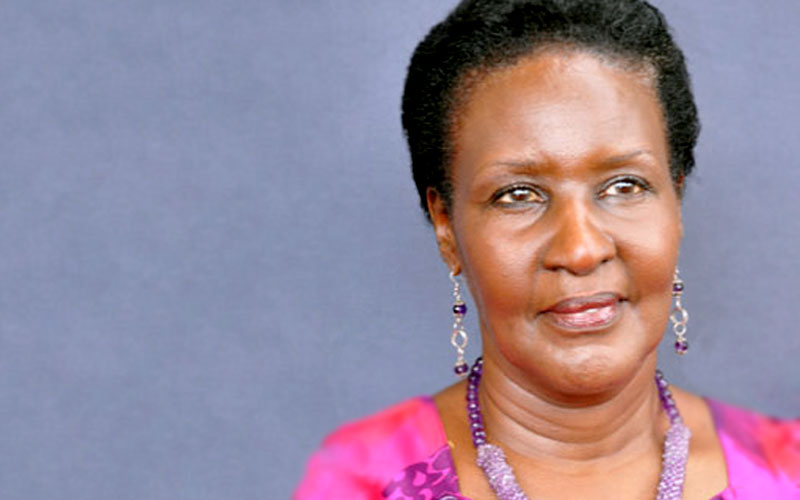“Uganda is a secure, democratic country with a liberalized and stable economy. It has a rich base of natural resources. Agriculture, mining, and the like are strong sectors.”

Uganda has substantial natural resources, but agriculture is the most important sector of the economy, employing over 80% of the work force and accounting for the bulk of export revenues. As one of the most important voices of your nation, which facts and figures would you like to point out about your country?
Uganda has a population of 36.5 million as of 2012 (according to the World Bank), and a population growth of 3.4% (which is quite big) so we are working very hard to make sure that we correlate the growth with infrastructure development. Uganda’s GDP is between US$25 billion to US$26 billion, with a growth of up to 7% (one of the highest in the world). Inflation has gone down to 6.6%. Food and labor are reasonably priced and the cost of living is affordable.
Our main language is English, which has given us a competitive advantage over all the other countries in Africa. It makes it easier for people from around the globe to communicate with us.
What can you tell us about the trade partnerships between Uganda and other countries?
We have pivotal trade partnerships. First, there is the East African Community (EAC), which has a population of 149 million people—that is our main market. Then we have the Common Market for Eastern and Southern Africa (COMESA), which has 19 member states and a population of 470 million—that is a huge market. We are in both regional blocs because we want to create a broader market for people who are investing in Uganda.
Could you tell us Uganda’s comparative advantages?
When you compare Uganda to other countries in the continent, we are endowed with huge natural resources. First, you have oil and gas (O&G), which is a new industry. Nonetheless, we have developed the legal framework, and started exploiting. Very soon, we will start trading. Our mineral resources are substantial. We have cobalt, copper, gypsum, limestone, phosphate, and others. The list is endless.
Tourism is another promising area. When you talk about tourism, you must come to Uganda. The potential that we have in the area of wildlife is big.
No other place has the kind of vegetation that we have. It is a combination for the dry season, the savannah and the wet season. Look at the flowers around here. That is also a source of tourism. There are people who appreciate those things.
Agriculture is another prospective area. Our main commodities include coffee, tea, cotton, spices, vegetables, and fisheries.
Unfortunately, when you look at these areas, we have been exporting them in a semi-processed form. There is an advantage here where you can come and add value to all these commodities. Unfortunately, when you are processing coffee, it is not done in full.
We would like to cover the entire chain—up to when it becomes instant coffee. We greatly welcome the idea of someone coming to the country to start a factory. That would add value to some of those agricultural commodities
Most investors are drawn to telecom ventures, communication services, insurance, and financial institutions. At the moment, we have registered about US$890 million for FDI.(Foreign Direct Investment). We could do better than that.
What can investors expect when they arrive in Uganda?
They can expect a well-regulated, highly liberalized economy where they can repatriate their funds as they wish. They get to enjoy a number of incentives. For example, they can bring in the machinery for their respective plants without paying taxes. Likewise, they are exempted from corporation tax for about 10 years. Unlike other administrations in the region, the Ugandan government does not require a 50% ownership.
As for labor, they can expect a highly competent pool to choose from. Local content laws (LCLs) require them to hire a certain percent of our local manpower. These people are highly trainable and will no doubt be an asset to their organizations.
What are the major concerns that you heard during investment summits and international trade fairs?
Access; they wonder about where to go when they come to Uganda. Of course, we have the Uganda Investment Authority (UIA), a one-stop investment center. We are very proud of it. It reduces the cost of doing business. UIA will link you to the Ministries/Departments concerned, as well as immigration. The next challenge is the flow of information, which I feel could still be substantially improved. There are so many things that investors could be made aware of.
Which are your priorities and goals for the short and medium term as Uganda’s Minister of Trade? What have you done to reduce the red tape, fight against corruption and eliminate trade barriers?
In a bid to fight corruption, we have had people audited, and taken to court. Disputes are taken to the commercial court and the Inspector General of Government (IGG). We have representatives in every office who monitor operations. Not everybody is keen about it, but I like it because it increases accountability and helps end corruption. This increased awareness has encouraged people to speak out without fear.
Uganda is a democratic country where people’s rights are respected. People are free to express themselves. That is probably why certain members of media are brazen enough to print just any old thing that they want. You cannot do that in other African countries. Here, you see several media houses. Those who print unfounded bad things about the government and the President are not afraid.
In general, what should investors know about Uganda?
Uganda is a secure, democratic country with a liberalized and stable economy. It has a rich base of natural resources. Agriculture, mining, and the like are strong sectors. There are so many possibilities to explore there. Uganda has a ready pool of affordable and highly competent manpower that they can hire.
0 COMMENTS